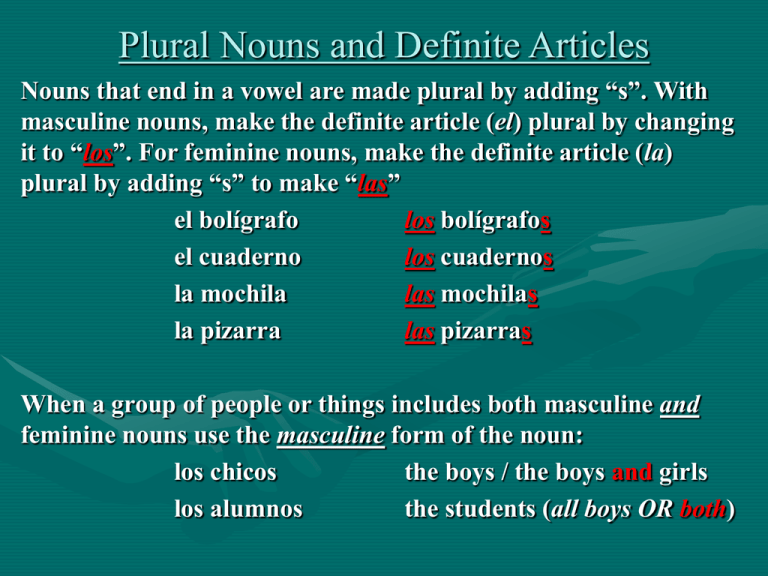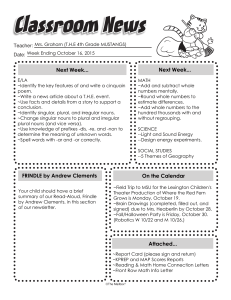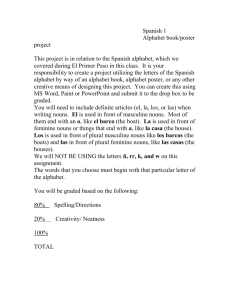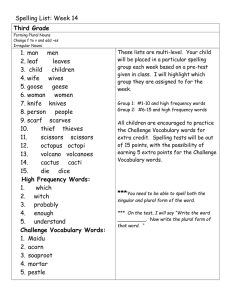Plural Nouns and Definite Articles
advertisement

Plural Nouns and Definite Articles Nouns that end in a vowel are made plural by adding “s”. With masculine nouns, make the definite article (el) plural by changing it to “los”. For feminine nouns, make the definite article (la) plural by adding “s” to make “las” el bolígrafo los bolígrafos el cuaderno los cuadernos la mochila las mochilas la pizarra las pizarras When a group of people or things includes both masculine and feminine nouns use the masculine form of the noun: los chicos the boys / the boys and girls los alumnos the students (all boys OR both) Nouns that end in a consonant are made plural by adding “es”. el borrador los borradores el papel los papeles Sometimes it is necessary to add or remove a written accent to keep the pronunciation the same when making a noun plural. el examen los exámenes Without the written accent in the plural, since exámenes ends in “s”, the stress would be on the next-to-last syllable, instead of on the “a”. The accent is needed to keep the pronunciation the same. la nación las naciones Here the accent is not needed because naciones ends in “s’ and the “o” is stressed according to the rules of pronunciation.




